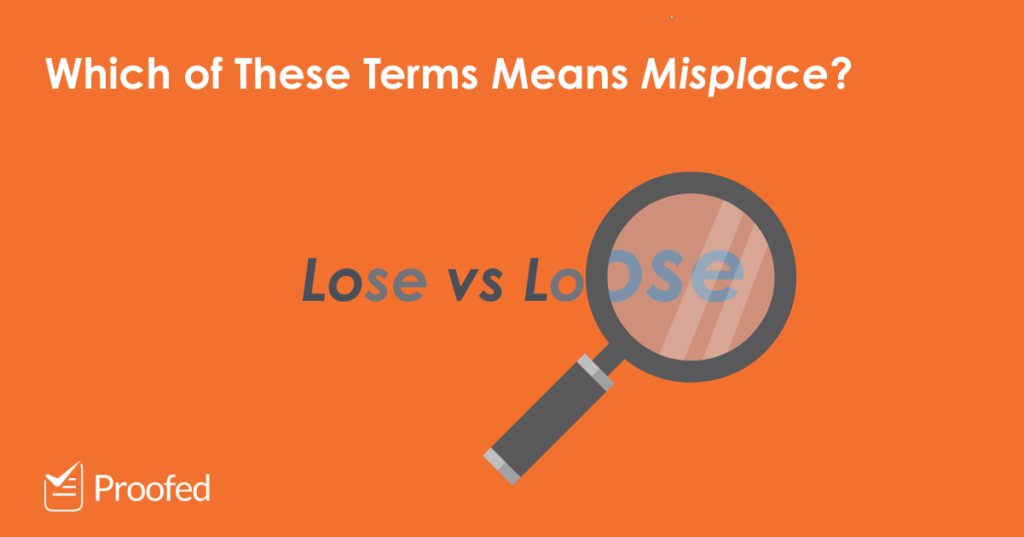One “o” or two? It makes all the difference with “lose” and “loose,” which are very easy to mix up. But how do you use these words correctly?
In today’s Word Choice post, we explain everything you need to know.
Lose (Misplace or Fail to Win)
“Lose” is pronounced with a hard “z” sound to rhyme with “snooze.” It has a few meanings, but all of them are as a verb (i.e., an action word). Possibly the most common use is to mean “misplace” or “cease to have”:
I always lose my glasses.
He started to lose his hair when he turned thirty.
The first sentence above describes someone misplacing something. The second sentence describes the balding process! There is a difference here (it would be difficult to misplace your hair unless you were wearing a wig). But both draw on the idea of no longer having something.
Another common use of “lose” is to mean “fail to win”:
They will lose the match if they keep playing like this!
This sense of “lose” can be applied to anything where there is a winner and a loser, including sports, games, fights, battles, and arguments. The simple past tense of “lose” is “lost” in all cases.
Find this useful?
Subscribe to our newsletter and get writing tips from our editors straight to your inbox.
Loose (Release, Not Tight or Unrestrained)
The “-s-” in “loose” is pronounced softly, so this term rhymes with “moose.” It is most commonly used as an adjective (i.e., a word that modifies a noun). It can also mean several things, including:
- Not tightly fastened (e.g., Your pants will fall down if they’re too loose.)
- Unrestrained or free from confinement (e.g., There is a lion loose in the zoo.)
- Not densely packed (e.g., It is easier to dig in loose soil.)
- Lacking precision or strictness (e.g., We have some loose rules about attire.)
These senses of “loose” are all a little different, but all draw on the idea of not being tight or strict. So “not tight” is the uniting theme of this term.
It can also be used as a verb, when it means “release” or “set free,” such as in:
She loosed an arrow towards the target.
We should loose the dogs to scare the intruder.
As shown above, the simple past tense of this sense of “loose” is “loosed.”
Summary: Lose or Loose?
These terms look similar written down, so it is easy to confuse them. Remember the following definitions:
- Lose (verb) means “misplace” or “fail to win.”
- Loose (adjective) means “not tight” or “unrestrained.”
- Loose (verb) means “release” or “set free.”
Keep in mind that “lose” is always a verb. The only time “loose” is a verb is when it means “release.” And if you are using an adjective, it will always be “loose” you need. But if you’d like some expert assistance with your word choice and spelling, why not submit a document for proofreading today?
